When we hear any 1990s superlative — radical, tubular, bodacious, etc — there’s only one manufacturer that springs to mind: Jerry Wiegert’s ambitious yet short-lived supercar firm, Vector. Like many of the other fledgling supercar companies of the 1990s and 2000s, Wiegert struggled to turn Vector into a profitable company — let’s not forget this was a period of fiscal peril for both Porsche and Lamborghini too — but before Vector finally closed its doors, it created a highly limited and exclusive run of the wildest automobiles to ever hit the road. With interest in collector cars from the 1990s on the rise, now might be the perfect time to add a Vector or two to your garage, especially as four of the best examples on the planet are heading to RM Sotheby’s Monterey Auction on August 16th, all hailing from the fabulous Turbollection. Read on to discover more about each of these amazing Vectors!
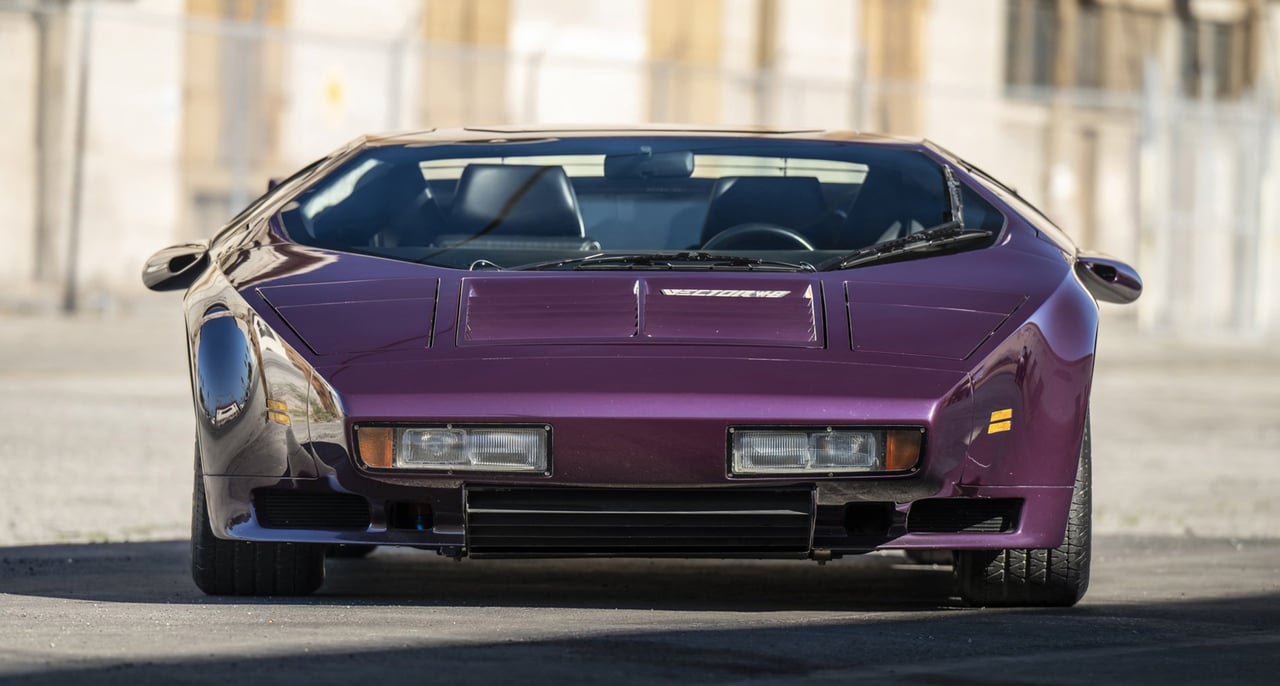
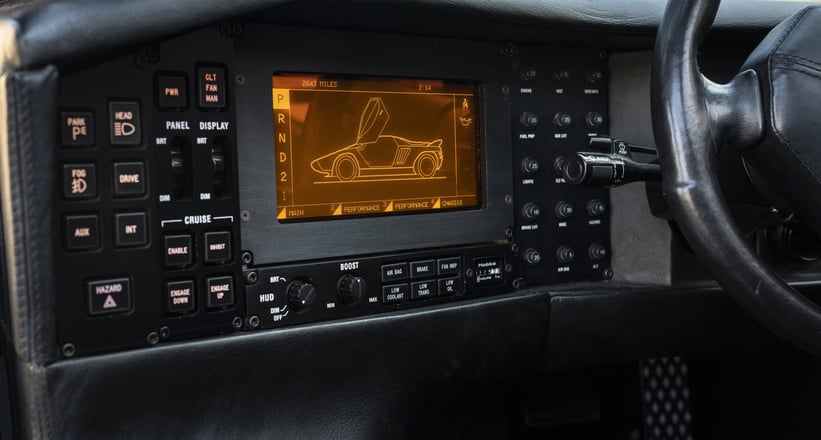
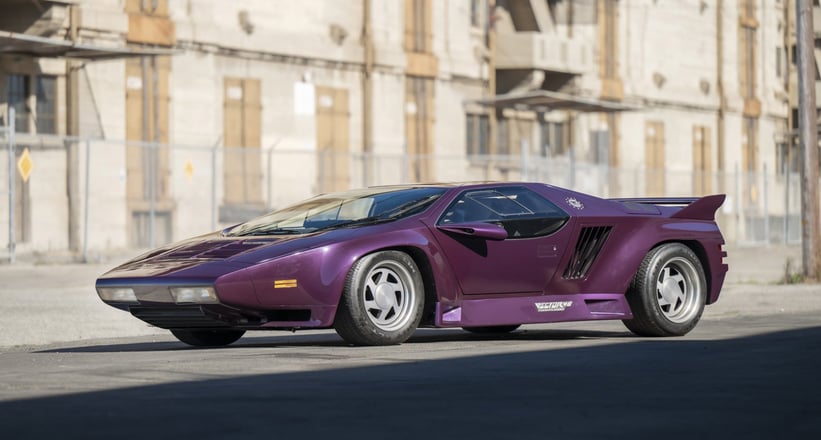
1991 Vector W8
Wiegert described Vector as an ‘Aeromotive’ company, and as such, he wanted the W8 to be as close as one could get to driving a fighter jet on the road. No corners were cut with this car’s construction, especially when it came to the engine: a transversely mounted, twin-turbocharged, 6.0-litre Rodeck V8 rated at 600 horsepower. Only 20 of these road-bound rocket ships were made, each costing the equivalent of almost 500,000 dollars when new.

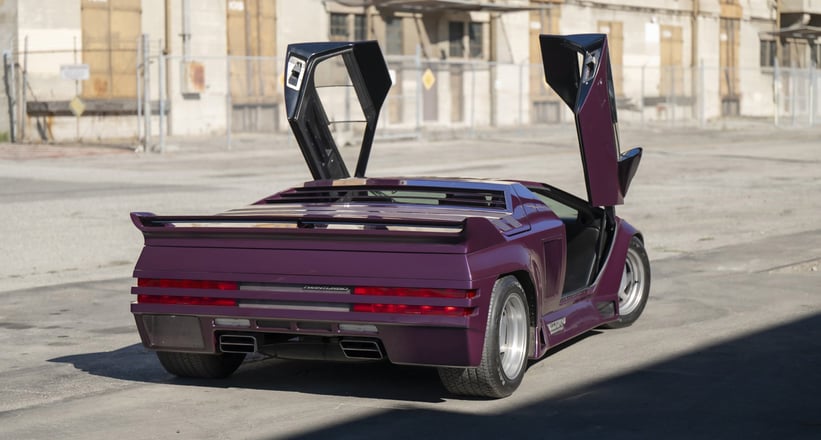

Beyond the otherworldly wedge-shaped polygonal design, the W8 featured quite a few quirks, including a gear lever and hand brake placed between the driver’s seat and door, and an advanced 10-disc Sony CD changer instead of a passenger airbag. The W8’s cockpit even featured a genuine fighter jet display, used to show real-time vehicle information, below which you’ll find a physical dial to manually adjust boost pressure. This Vector can run a highly impressive 12 second quarter mile, while any sufficiently brave pilot will discover that the W8’s top speed is well north of 200 mph.
This car, serial number 009, was completed in 1991 and is the only W8 finished in purple over a black full-leather interior, a colour combo which we feel suits this American supercar perfectly. In March 2023, this W8 was treated to a thorough recommissioning by Vector’s former Chief of Engineering, David Kostka. Currently showing just 2,643 miles, this is an extremely rare chance to add Vector’s first production car to your collection.
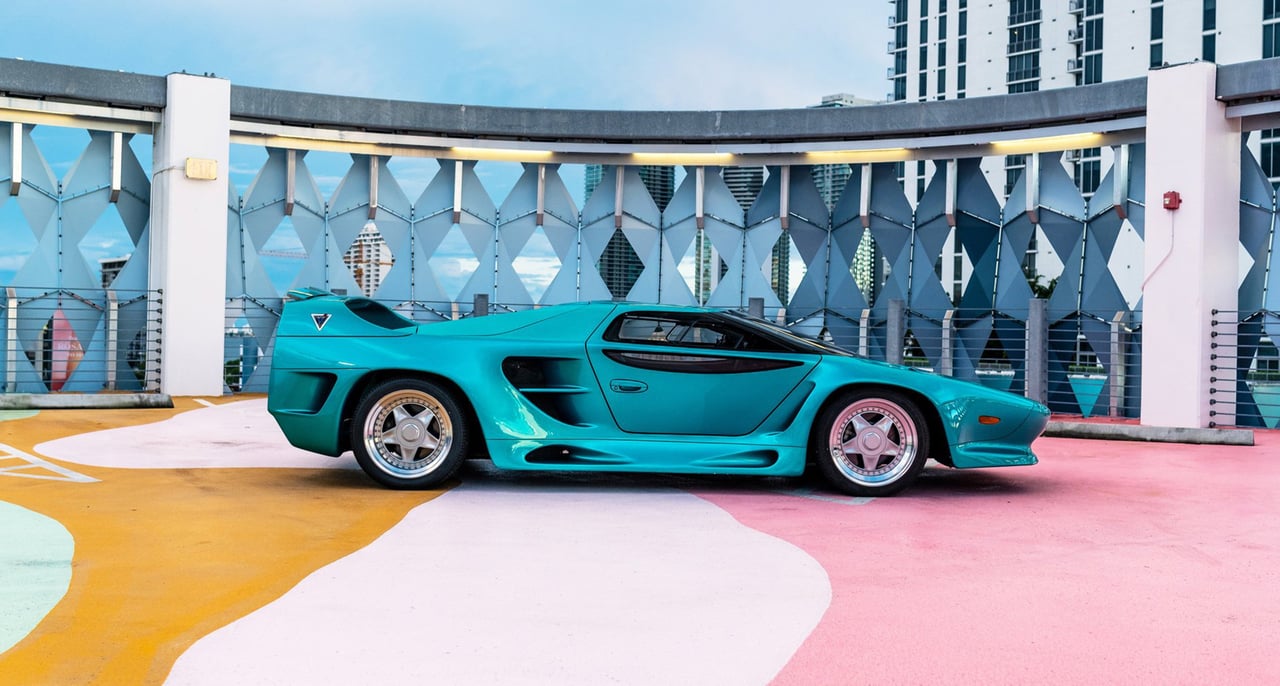
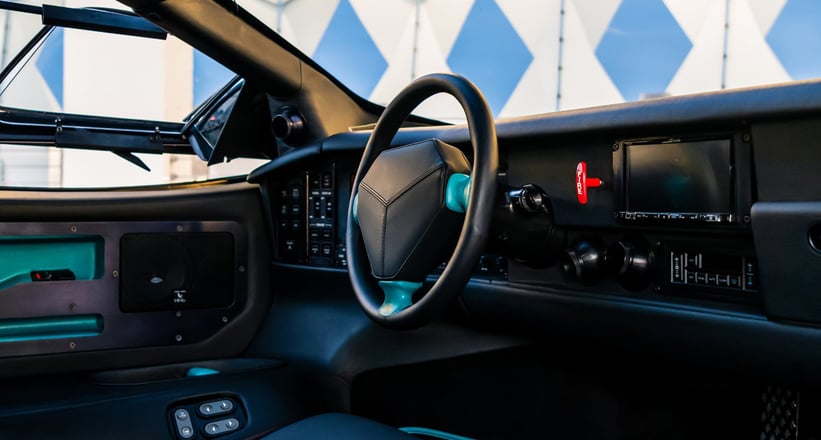
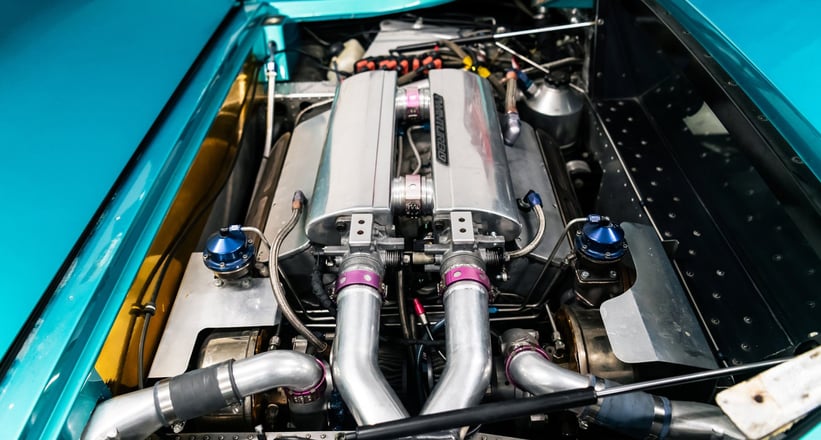
1993 Vector Avtech WX-3 Prototype
Following the relative success of the W8, Vector debuted the Avtech WX-3 Prototype at the 1992 Geneva Motor Show as a non-running but fully-trimmed display model. Like the W8, it was constructed out of cutting-edge materials including carbon fibre, aluminium honeycomb, Kevlar, and the addition of an integrated rollcage, although the WX-3 ditched the W8’s angular design for more curvaceous surfacing typical of the 1990s.
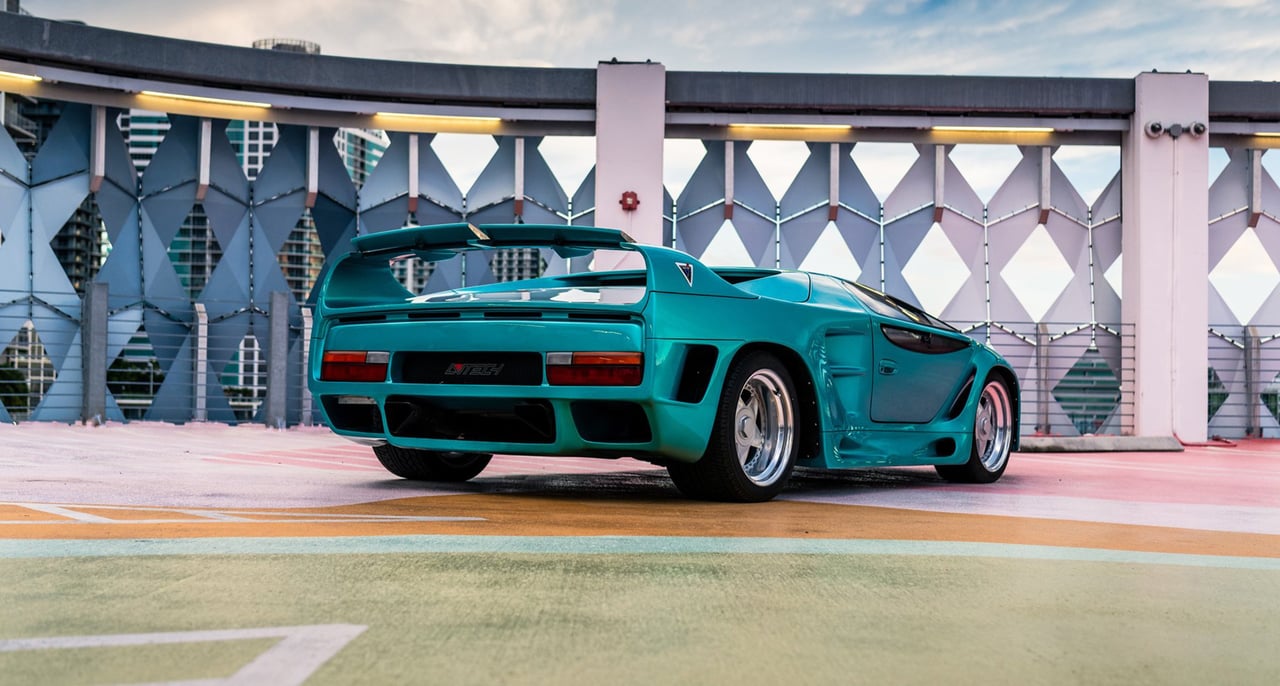
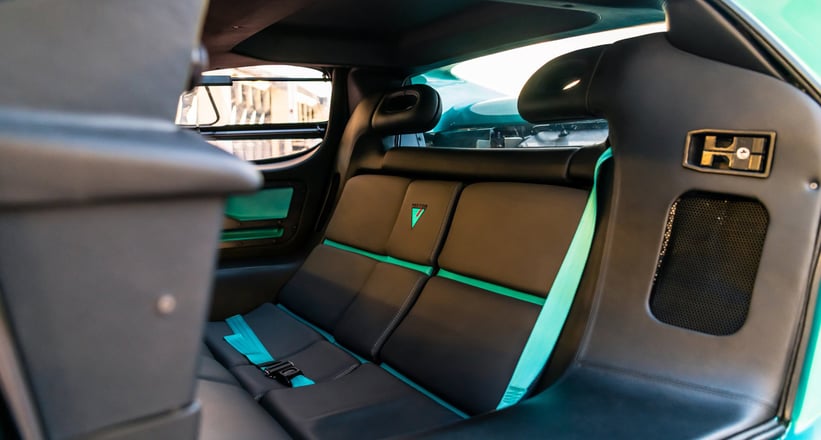
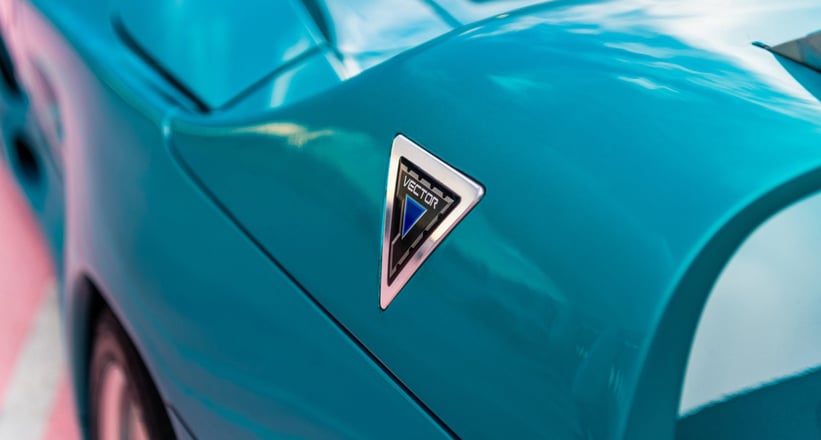
At the following year’s Geneva Motor Show, Wiegert debuted the upgraded WX-3 prototype, now fitted with a monstrous heart: a twin-turbocharged 7.0-litre V8 delivering 1,000 horsepower, with claims of a 0-60mph sprint of just 3.3 seconds and a blistering top speed of 248 mph. Inside, the WX-3 clearly built upon the W8’s foundations, featuring the same fighter jet display still showing the W8’s side profile. However, changes were made to the seating layout, with this WX-3 prototype adopting an unusual three-place bench configuration in black leather with teal trim.
Despite placing a whopping 765,000 dollar price tag on the WX-3, the model never left to prototype phase, with a hostile takeover attempt by the Indonesian-government backed MegaTech stalling development. Following a courtroom showdown, Wiegert emerged with the rights to the WX-3’s design, and the two extant prototypes, which he retained until 2019. This car’s previous custodian treated it to a 300,000 dollar restoration at the hands of Miller Motorcars of Greenwich, Connecticut, which primarily focused on refreshing the interior and mechanical components. Today, this unique Avtech WX-3 prototype wears the same stunning turquoise paint that it used to stun onlookers at the 1993 Geneva Motor Show and represents an incredible opportunity to own the final model from America’s first true supercar company.
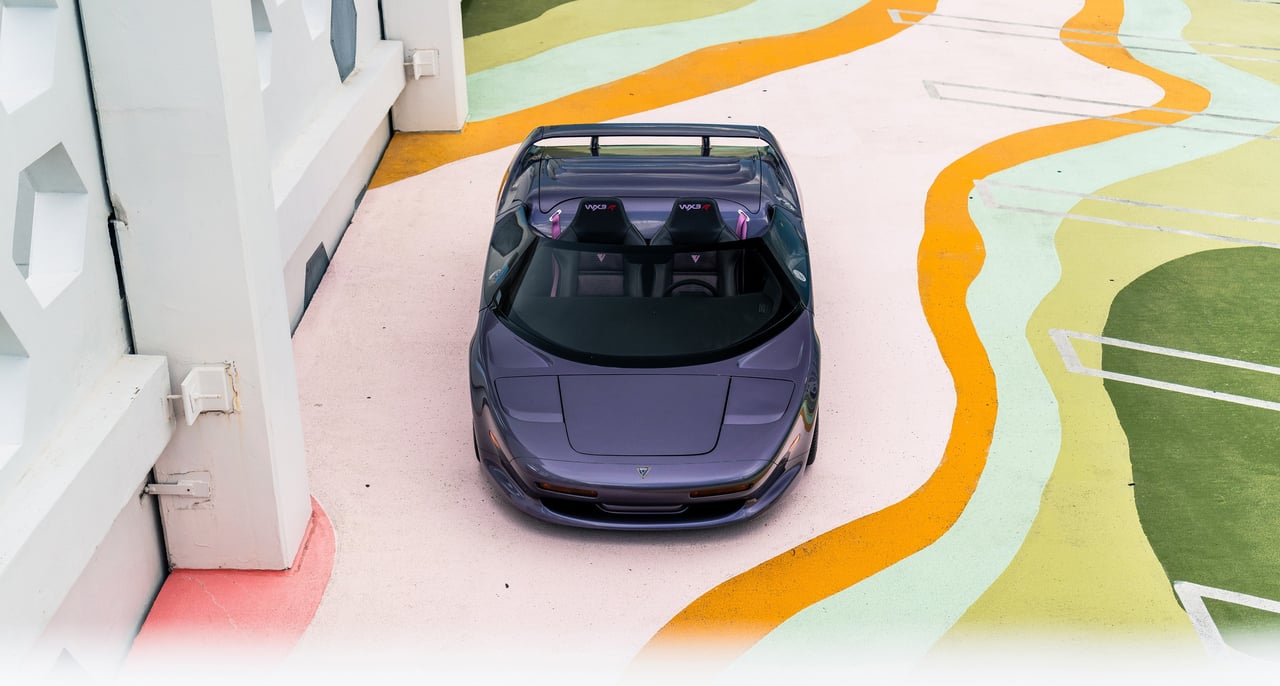

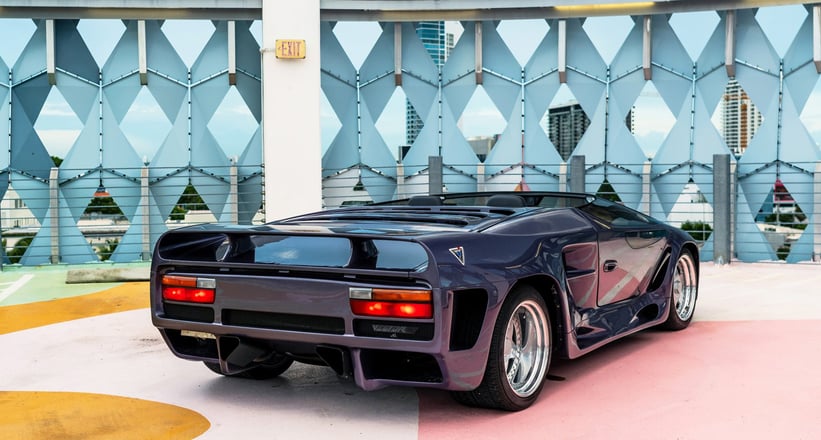
1993 Vector Avtech WX-3R Roadster Prototype
As we mentioned earlier, Vector built just two WX-3s before they had a small legal disagreement with the son of an Indonesian dictator, and this is the other car: the sole WX-3R Roadster in existence. Wiegert envisioned a range of motors for the WX-3, and so unlike the coupe, the roadster featured a less potent but still fearsome 6.0-litre twin-turbocharged aluminium V8, conservatively rated at 625 horsepower.
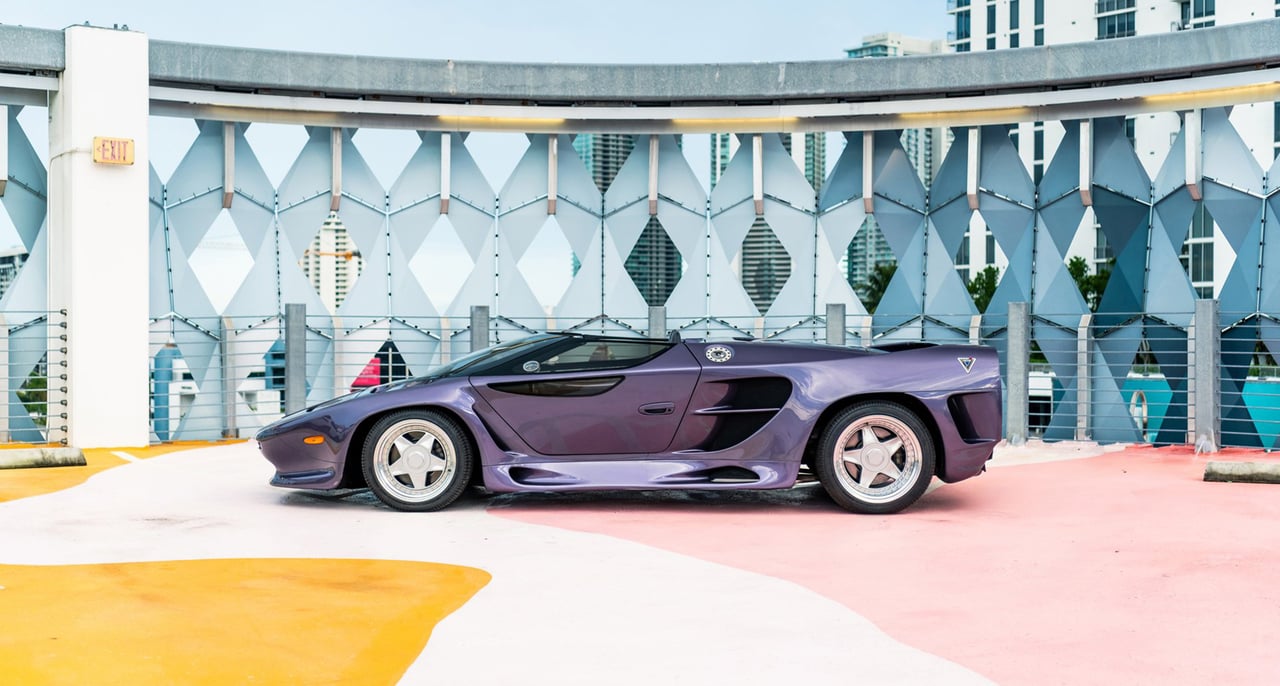
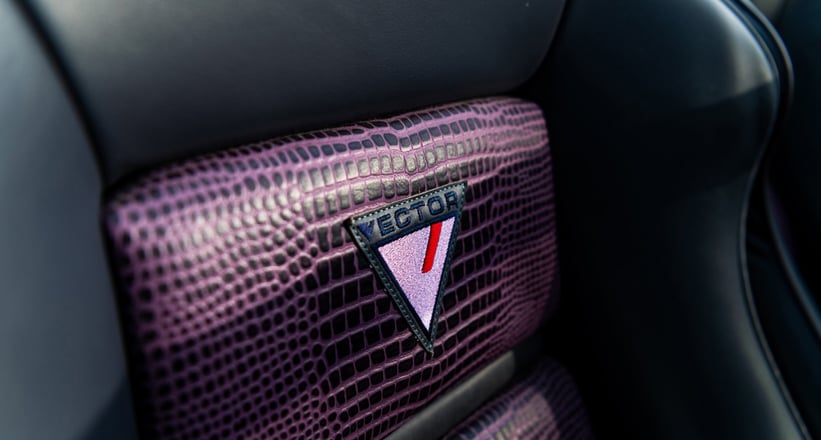
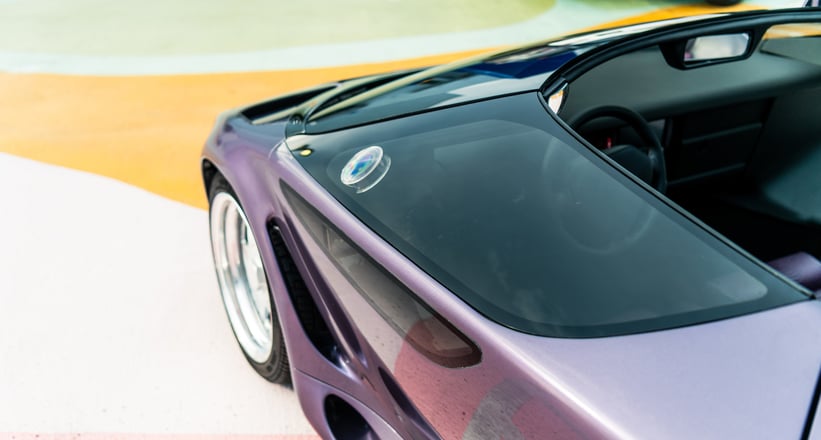
While the roadster shared much in common with the coupe, its design was arguably even sleeker thanks to the aggressively angled windshield, which seamlessly wraps around into the side windows. This low-slung side profile was further accentuated by a lower rear wing, while the interior ditched the three-seat layout for two snug Recaro bucket seats. Like the coupe, it featured General Motors Turbo-Hydramatic 425 transmission, which helped deploy the WX-3R’s significant thrust for an over-200 mph top speed.
Sold from Wiegert’s collection alongside the coupe in 2019, this WX-3R also benefitted from a comprehensive restoration at Miller Motorcars, totalling 116,000 dollars. Today, this unique roadster remains in its showcar colour scheme of Amethyst Purple, while the interior has been refurbished in black leather with purple crocodile skin. One last thing to note is the surprisingly high mileage of more than 89,000 miles: a result of Wiegert’s attempt to convince prospective buyers at Geneva of the car’s reliability.

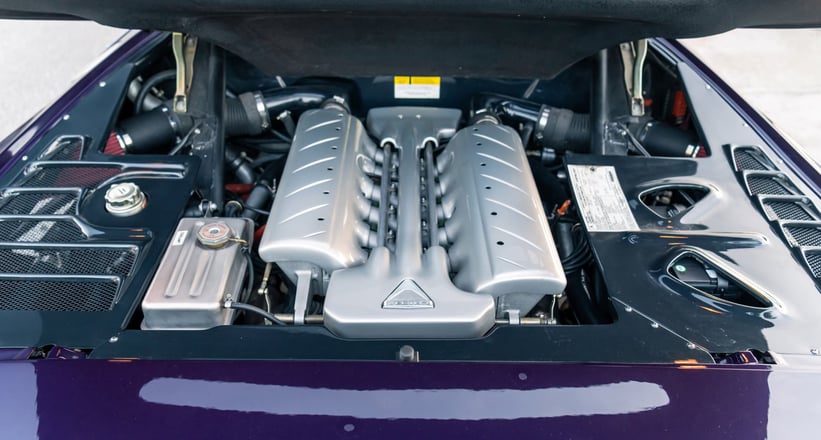
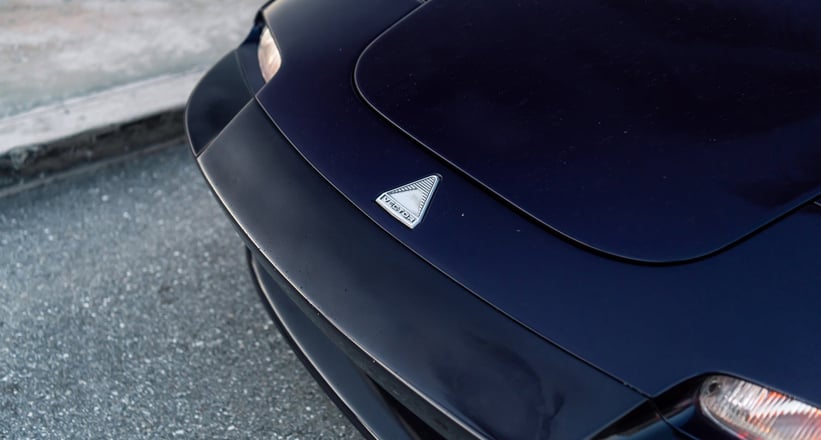
1996 Vector M12
Following their hostile takeover of Vector, MegaTech moved the firm from Southern California to Jacksonville, Florida, where the company set up shop in the same facility as Lamborghini’s North American base of operations. After all, MegaTech had also just acquired Lamborghini from Chrysler, and hoped to combine both firms to create American-Italian supercars.
Unveiled at the 1996 Detroit Motor Show, the Vector M12 was the firm’s first supercar under their new ownership. While outwardly it borrowed much from the WX-3’s design, under its skin it utilised a modified Lamborghini Diablo chassis. Additionally, while the WX-3 featured a Vector-built V8, the M12 raided the Diablo’s parts bin again for its V12 engine. While it never lived up to the WX-3’s unhinged 1,000 horsepower promise, the 500 horsepower M12 was still one of the most fearsome cars of its time.



Interestingly, Vector struggled to pay Lamborghini for these V12s, and eventually they offered a Vector W8 as compensation, which the Sant’Agata-based firm surprisingly accepted. MegaTech later sold Lamborghini to Audi, which cut off supply of the V12 engine and essentially shut the doors on Vector until Wiegert eventually managed to reclaim control of the company.
This 1996 Vector M12 is fifth of only 17 examples built during this tumultuous period, of which only 14 were considered full ‘production-spec’ models. The only purple example built, this 6,151 mile M12 has been sparingly driven and is ready to be enjoyed by its next custodian.




























